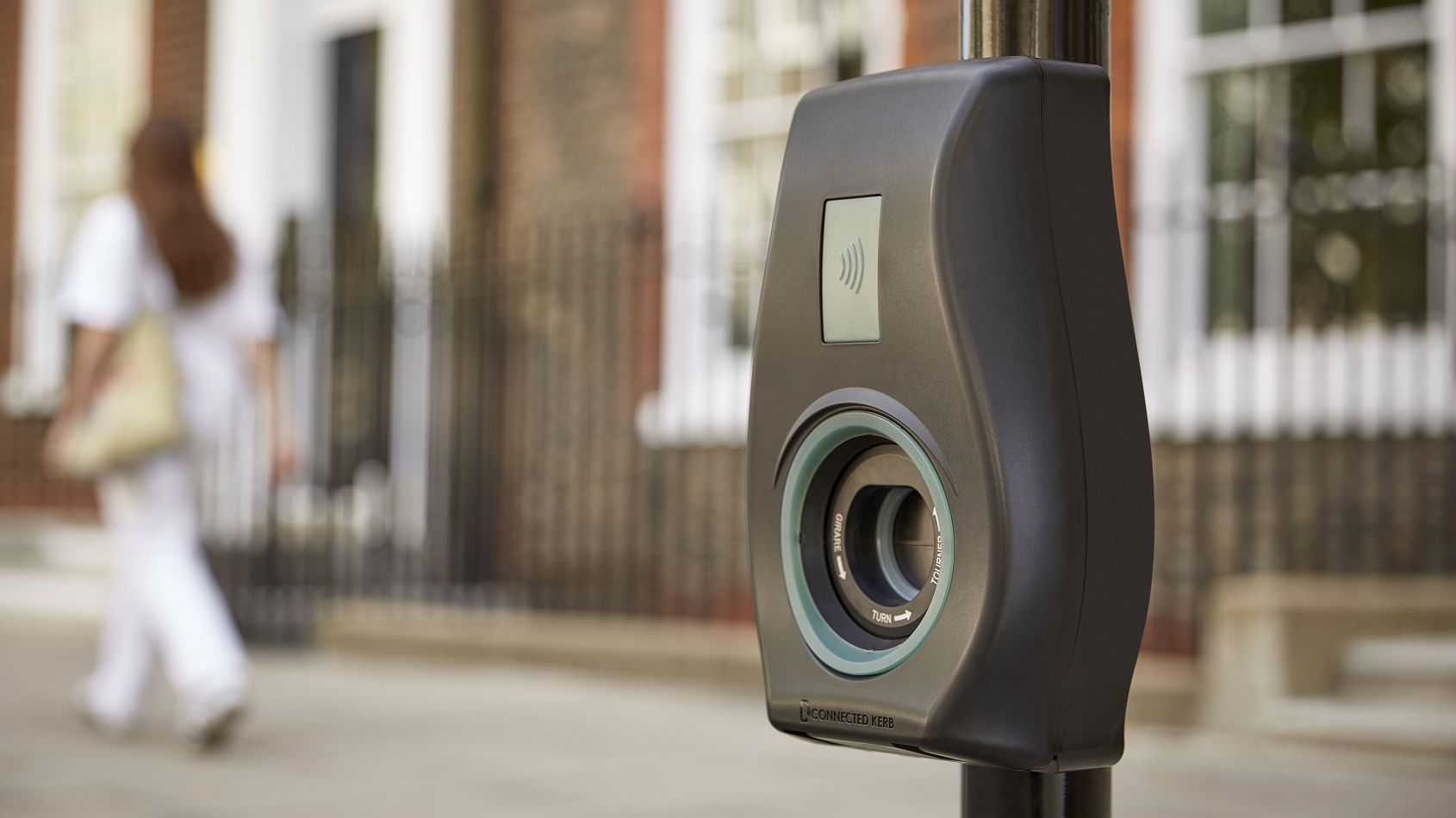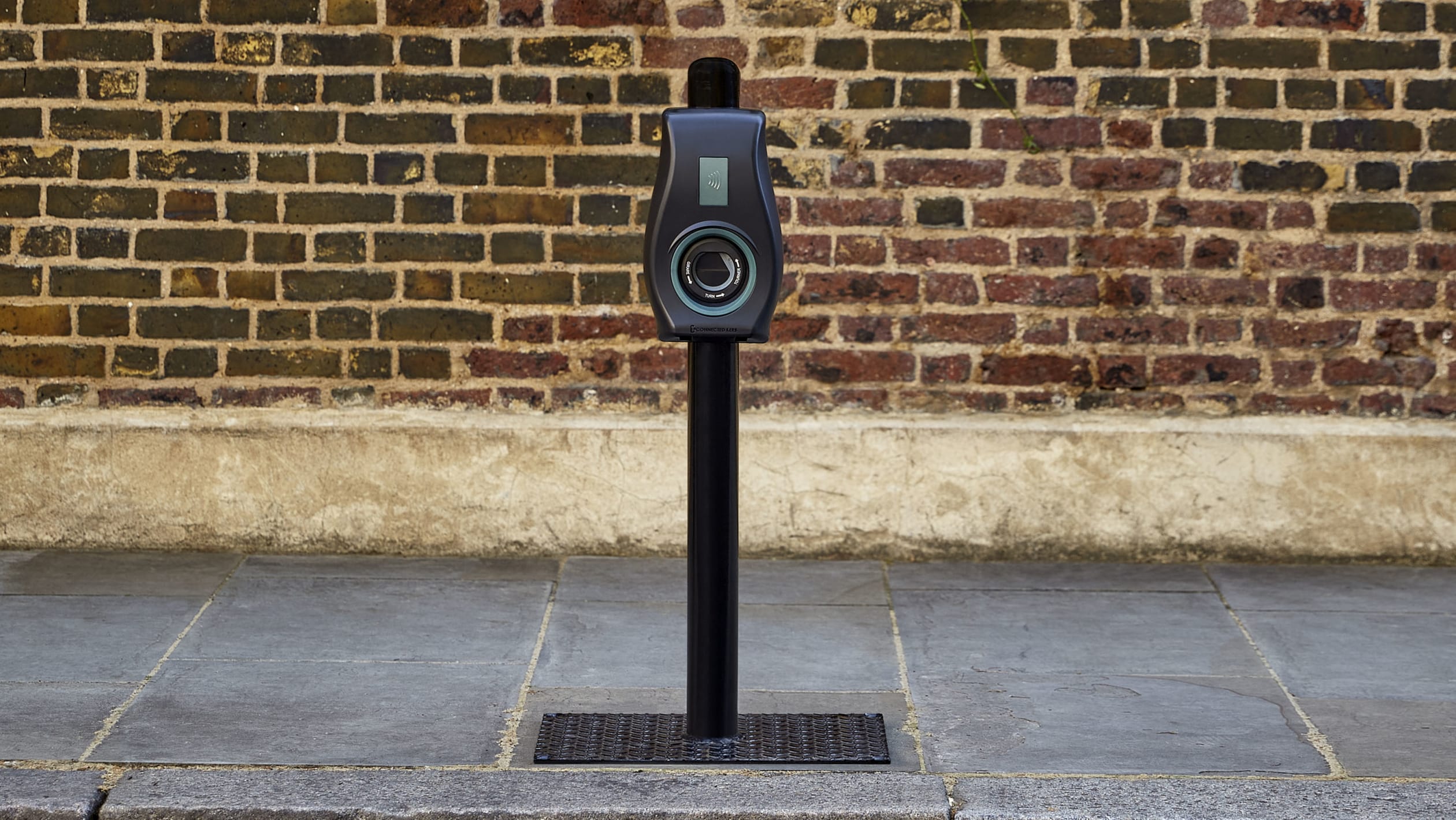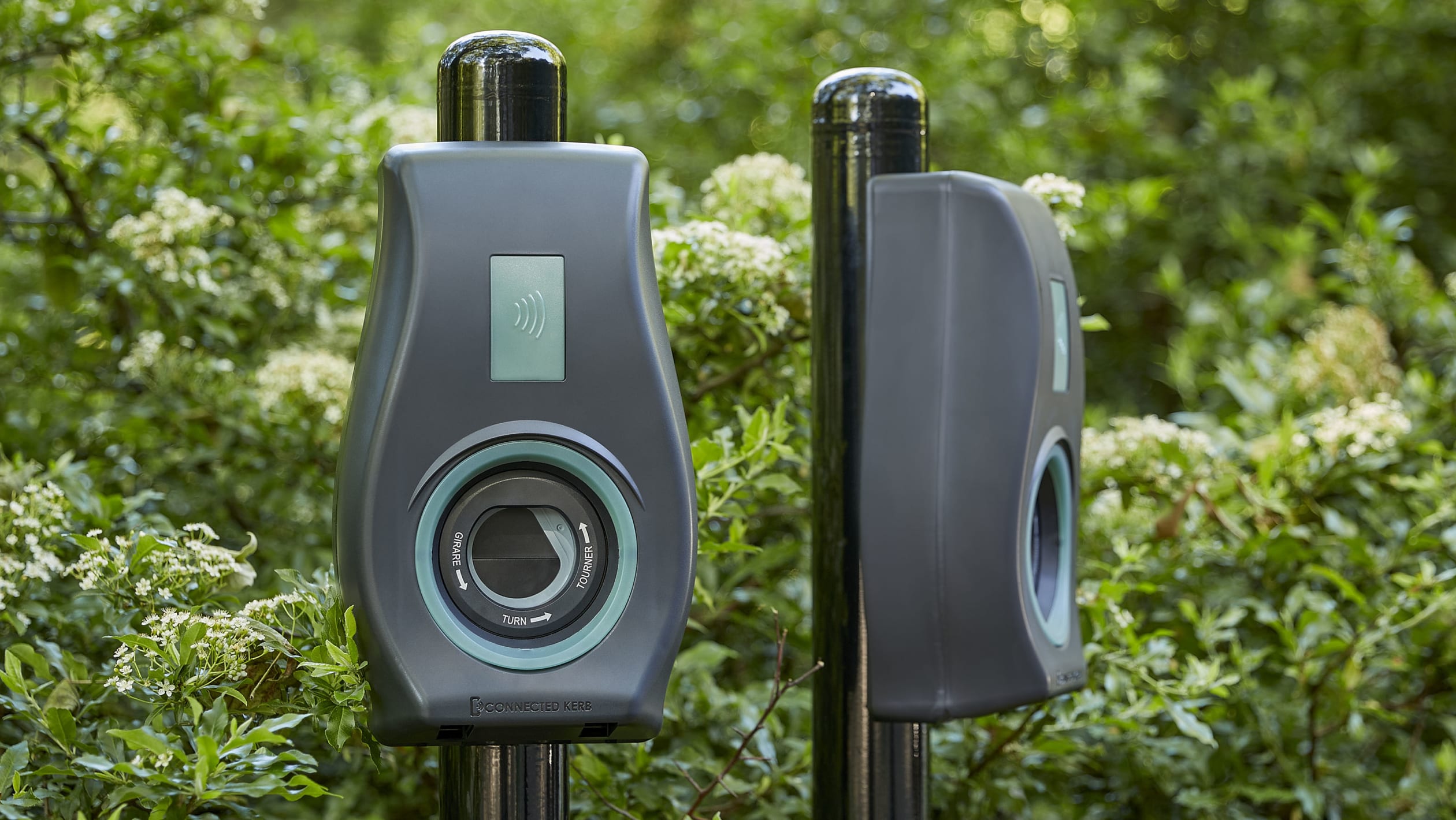What do you do if you don’t have off-street parking and need to charge your electric car?
Plugging your electric car in at home is not a problem if you have a garage or even just a driveway but for city-dwellers where EVs make most sense things are a bit more complicated.
In Australia, on-street charging is yet to make good headway with only some trials but no widespread plan or initiative. So what does it look like?
Overseas where laws restrict combustion engine sales in the future and have forced uptake of electric cars, solutions for charging hubs and on-streets points are blooming. A good example of on-street solutions is Connected Kerb, a UK company rolling out chargers across London.
Connected Kerb will work with Lambeth Council to install 22 charging points across 11 council estates, all of which will be capable of providing a 7kW fast charge. The revenue from the newly installed units will go to Lambeth Council, which can go towards the maintenance and expansion of the network of chargers.
This first-of-its-kind project is part of Lambeth council’s strategy to install more than 200 charging points by 2022, with the goal of ensuring every household without off-street parking is within a five-minute walk of a charge point.
Connected Kerb believes this project will be a blueprint for similar initiatives to bring chargers to more communities. Chris Pateman-Jones, CEO of Connected Kerb, said of the project: “People often think electric vehicles are the preserve of a fortunate few with detached houses and driveways, but this couldn’t be further from the truth.
“With running costs much lower than petrol and diesel cars, all communities, regardless of where they live, their social background, or whether they have a driveway or not, have lots to gain.”
This latest announcement follows the news that earlier this year Connected Kerb began work to install a total of 40 electric-car chargers at 20 sites around UK county Kent that are currently underserved by chargers.
Much like the project in Lambeth, all income from the Connect Kerb chargers goes to the local community or will be used to support the rollout and maintenance of more chargers. The 40 chargers that went online in earlier this year represent the first phase of the project, with 12 more locations being evaluated as part of phase two.
Connected Kerb currently provides three different types of on-street charging points, all of which use the Type 2 connector to ensure compatibility with most electric cars.
The first are wall-mounted ‘Limpet’ chargers which are capable of up to 7kW charging speeds, while its ‘Gecko’ chargers (above) can reach speeds up to 22kW. Importantly, Geckos can be retrofitted to lamp-posts and other existing street features as opposed to a wall. The company’s 7kW ‘Armadillo’ chargers on the other hand sit alongside residential parking bays and on-street parking areas.
As well as acting as public charging points, Connected Kerb’s chargers provide wi-fi access to electric-car drivers, with fibre broadband speeds of up to 1GB/s. Each unit is also future-proofed and ready for 5G mobile connectivity, as and when such speeds become available outside of the select areas they currently are.
The chargers are considered ‘smart’, which means they’re capable of communicating with in-car apps. They can also be fitted with sensors that can monitor everything from air quality and road temperature to parking-bay occupancy and power demand forecasting.
This added functionality is key for making a business case for installing these charges in more rural areas. Local authorities could, for example, purchase road-temperature information to help make gritting roads more efficient, while broadband providers could use these chargers as an opportunity to offer broadband in areas that wouldn’t otherwise be upgraded. The potential from what is a fundamental need for many EV owners looks set to spurn further innovations.
Ellis Hyde






